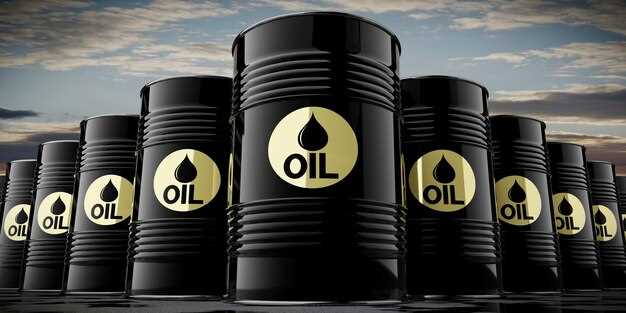
The automotive industry is dominated by two main types of engines: gasoline and diesel. These engines vary significantly in their design, operation, and performance characteristics. Understanding these differences is crucial for consumers, manufacturers, and automotive enthusiasts alike, as it impacts everything from fuel efficiency to maintenance requirements.
At their core, gasoline and diesel engines utilize different combustion processes. Gasoline engines rely on a spark ignition system, while diesel engines operate on compression ignition. This fundamental distinction leads to variations in power output, torque delivery, and overall efficiency. For example, diesel engines typically produce more torque at lower RPMs, making them ideal for heavy-duty applications such as trucks and industrial machinery.
Another key difference lies in fuel composition and energy content. Diesel fuel has a higher energy density compared to gasoline, translating to improved fuel economy. This advantage is further enhanced by the inherent design of diesel engines, which operate at higher compression ratios. As a result, many users find that diesel engines provide a better return on investment over the long term, especially for those who frequently drive long distances or require heavy towing capabilities.
Fuel Type and Combustion Process
Gasoline and diesel engines operate on different fuel types, which significantly influence their combustion processes. Gasoline engines utilize a fuel mixture that is more volatile, designed for spark ignition. This means that the fuel-air mixture is ignited by a spark from the spark plug, resulting in a rapid and explosive combustion. This quick burn facilitates higher RPMs and the ability to produce more power in a shorter amount of time.
Diesel engines, on the other hand, run on diesel fuel, which is less volatile and has a higher energy content per liter compared to gasoline. In diesel engines, the combustion process is initiated by compressing the air in the cylinder, which raises its temperature. Once the air temperature is sufficiently high, diesel fuel is injected directly into the combustion chamber, where it auto-ignites. This process allows for a slower and more controlled combustion, resulting in greater fuel efficiency and higher torque at lower RPMs.
The differences in fuel types also affect the performance characteristics of each engine. The energy density of diesel fuel provides diesel engines with the advantage of higher fuel efficiency and longer driving range. In contrast, gasoline engines excel in terms of power output and responsiveness, making them more suitable for applications where quick acceleration is required.
In summary, the distinct characteristics of gasoline and diesel fuel play a critical role in their respective combustion processes, ultimately determining the performance and operational efficiency of the engines that utilize them.
Engine Design and Performance Characteristics

Gasoline and diesel engines exhibit significant differences in their design, which directly impacts their performance characteristics. Gasoline engines typically feature a lighter construction with a focus on higher RPMs, allowing them to deliver quicker acceleration and higher speeds. In contrast, diesel engines are built with sturdier components to withstand the increased pressure and temperature from the fuel combustion process, resulting in a longer engine life.
The combustion process varies between the two types of engines. Gasoline engines utilize a spark plug to ignite the air-fuel mixture, which facilitates a smoother and more rapid combustion. Diesel engines, however, rely on compression ignition, where air is heavily compressed before fuel is injected, creating a high-temperature environment for combustion. This method enhances fuel efficiency and torque, making diesel engines better suited for heavy-duty applications.
Regarding fuel consumption, diesel engines are generally more efficient than gasoline engines, providing more torque at lower RPMs. This characteristic allows diesel engines to excel in towing and hauling activities. Gasoline engines, conversely, tend to perform better in situations requiring rapid acceleration due to their ability to reach higher RPMs more swiftly.
Overall, the differences in engine design between gasoline and diesel systems shape their performance characteristics, influencing their suitability in various applications from personal vehicles to commercial trucks.
Maintenance Requirements and Longevity

Gasoline and diesel engines have distinct maintenance needs that influence their longevity. Generally, diesel engines are built to withstand higher pressures and temperatures, which can lead to longer lifespans when properly maintained. This durability often translates into lower maintenance frequency compared to gasoline engines.
Diesel engines typically require fewer oil changes due to their larger oil capacity and higher quality oil used, which offers better wear resistance. In contrast, gasoline engines may need more regular oil changes, as the oil degrades faster under the lighter loads and higher RPMs commonly associated with gas operation.
Another factor affecting maintenance is the fuel system. Diesel engines have a more sophisticated fuel injection system that requires periodic cleaning and maintenance to prevent deposits that can hinder performance. Gas engines, while simpler, can face issues such as fouled spark plugs that require more frequent attention.
In terms of overall longevity, diesel engines often achieve greater mileage before significant repairs are needed. This can be attributed to their robust construction and operating principles. However, the initial cost of maintaining a diesel engine is generally higher due to specialized parts and the necessity of more advanced service tools.
In summary, while both engine types have their unique requirements, diesel engines typically offer better longevity with proper upkeep, whereas gasoline engines may demand more frequent maintenance but can be less expensive to maintain in the short term.



